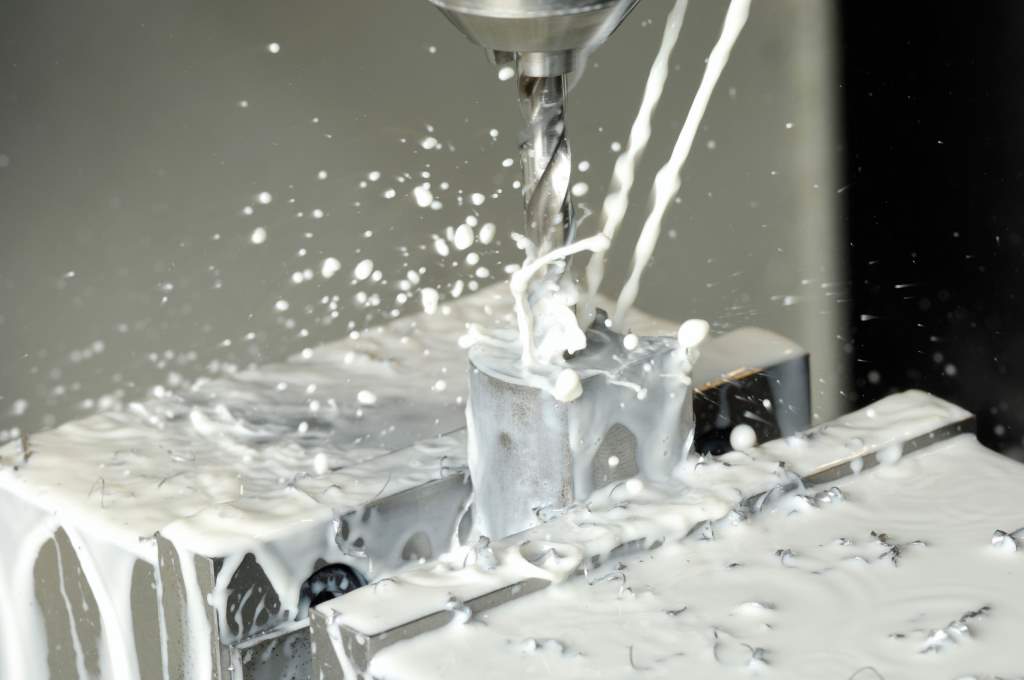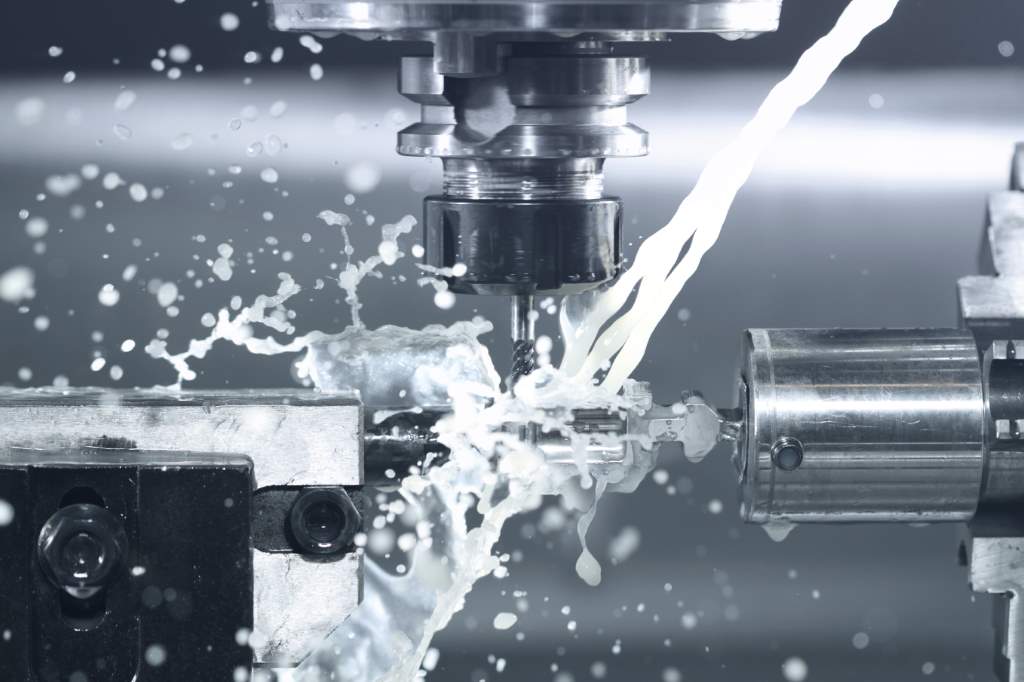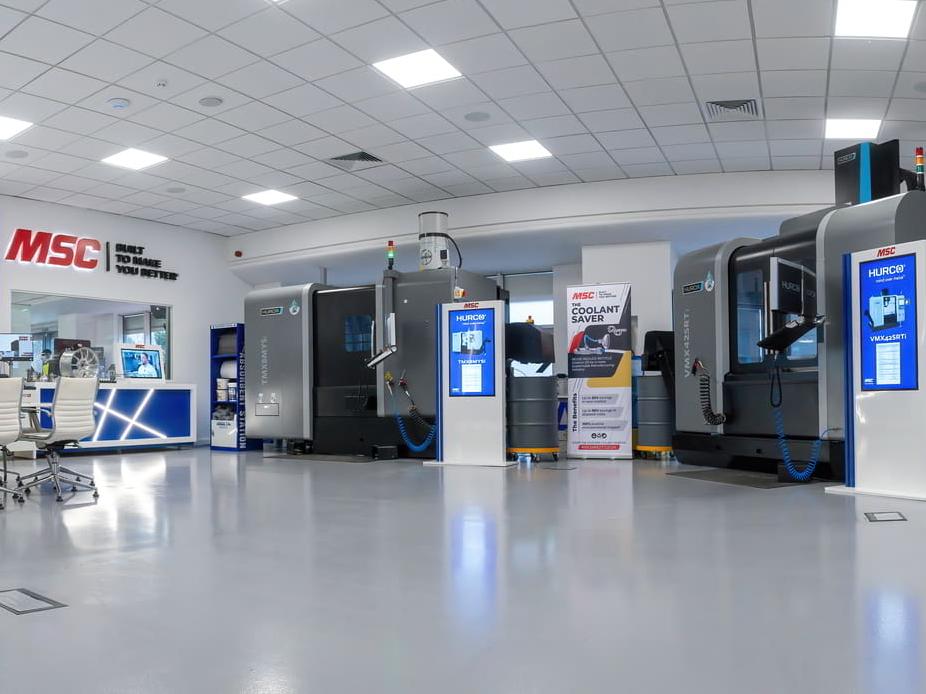Engineering peak performing cutting fluids

In this Q&A, Rocol product manager Max Reynolds, discusses with Ed Hill the latest technology employed in its range of advanced cutting fluids.
Q) Firstly, can you tell us about the company and the range of cutting fluid products you supply?
Rocol, a division of Illinois Tool Works (ITW Ltd), is a UK manufacturer based in Swillington, near Leeds. For almost 150 years, we have been developing, manufacturing, and marketing high-quality greases, industrial lubricants, and cutting fluids.
We are proud to have a wide range of technically advanced lubricant products that have been created to operate in the harshest conditions. Our RTD ‘Reaming, Tapping, Drilling’ liquid has been a must-have for machine shops all over the world. So much so that the RTD name is synonymous with the Rocol brand. The product can greatly extend tool life and reduce costs for our customers.
In addition to this, we have a range of cutting fluids formulated for the toughest alloys like Inconel and Wolfram, to specialist materials like aluminium and titanium, to mild steels, iron, and to softer metals like copper and brass.
Our Ultracut Evo and Tri-Logic cutting fluids, for example, are used across the world to cut metals that go on to be used in Formula One, aircraft, and many other applications.

Q) Can you explain in more detail the difference between a cutting oil/lubricant and a cutting fluid/coolant their uses and applications?
The differences reflect a change in technology over time. Traditionally neat oils have been used to lubricate the tool and metal surface, cooling them directly, reducing friction at the cutting face and also carrying away chips of cut metal.
More modern technology has seen the development of emulsions which allow us to extend the oil phase of a cutting fluid with water, and more recently similar developments with synthetics. The advantage of this is in the greater heat capacity of water to absorb waste energy from the cutting operation, and to greatly reduce the cost of the whole fluid versus the equivalent volume of a neat oil.
Ultimately, both neat oils and emulsions feature lubrication and cooling which allows machinists to increase cutting rate and extend tool life preventing damage to parts and scrapping.
Q) How do you mitigate the health and safety issues associated with cutting oils/fluids?
At Rocol we take Health and Safety, as well as environmental policy, very seriously. We are committed to continuous improvement in this area. When it comes to Health and Safety at work, we know that cutting fluids can be a messy business, with bacteria and fungus sometimes growing in the cutting fluid and causing bad smells.
The best prevention is good fluid care: removing tramp oil and preventing contamination. If a bacterial or fungal infection occurs, then we may have to treat it with chemicals to kill them off and keep a keen eye on the fluid. At the end of fluid life it is important to perform a thorough clean out by removing the fluid and residues, treating with a system cleaner, and only then replacing the fluid.

Q) Have the demands on cutting fluids/oils increased with the introduction of developments like multi-axis machining and lights out production?
There certainly are more demands on cutting fluids. Technology has meant better tooling, faster cutting rates, harder alloys and higher pumping pressures, which have all combined to increase the demands on the fluid. Fortunately, Rocol continues to formulate for performance with the right package of extreme pressure, anti-wear and lubricity additives, meaning that our technology has been able to move with the times and improve.
Q) In what ways do cutting fluids help improve machining time, tool life, surface finish, productivity etc.?
The main task is for the fluid to wet the cutting tool and the face of the metal being cut, thereby reducing friction during the cutting operation and cooling the cutting surface and cutting tool.
The forces exerted during machining are significant and we can see this most immediately in metal being cut away from the billet. However, this also exerts stress and wear on the cutting tool itself. Excessive stressing and fatigue of the cutting tool can cause it to fail, and if that tool (or a reamer) happens to break off in a part being machined, then it can completely write-off the part, sometimes costing thousands of pounds.
Heat exacerbates the fatigue of the tool and increases the likelihood of a break, but by lubricating, the friction is reduced between the tool and metal, reducing the temperature in both. Similarly, the tool wears with age and becomes less effective at cutting, which increases the risk of a tool breakage.
Ultimately, the cutting fluid cost is marginal in comparison to a complex part which may require tens or hundreds of hours of machining, or having to consistently replace tooling, so, it’s an investment in success to buy a Rocol fluid. Also, when applied in bulk, the sheer volume of fluid cools the cutting tool but also carries away the swarf and chips down to the machine augurs which dump them into conveyors.
Rocol prides itself in providing cutting fluids with high dilution ratios, as can be seen when you compare our ‘correction factors’ or ‘refractometer adjustment’ against our competitors’ products. This advantage of Rocol cutting fluid continues.

Q) Can you tell us more about your Ultracare service, how does it work and how does it benefit your customers?
When it started, Ultracare was a gamechanger in the market, taking fluid care out of the hands of the customer and allowing us as a supplier to offer a total solution. Today we still stand by our offering with a team of service engineers who ensure that the cutting fluids are well looked after so that the customer’s machines can cut alloy all year round.
A customer interested in Ultracare can sign-up at any time. We work closely with customers to define the key needs and a service pattern which suits your machine shop and covers a yearly period, after which customers can choose whether to continue. We have found that this freedom to opt-in and in working side-by-side with our customers leads to success for the customer and for Rocol.















